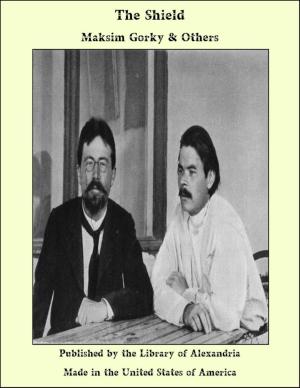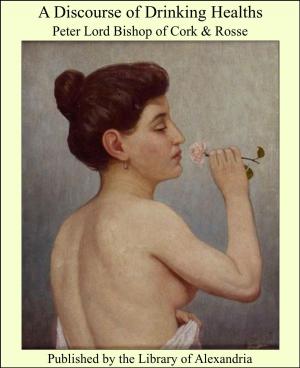| Author: | William Le Queux | ISBN: | 9781465595430 |
| Publisher: | Library of Alexandria | Publication: | March 8, 2015 |
| Imprint: | Language: | English |
| Author: | William Le Queux |
| ISBN: | 9781465595430 |
| Publisher: | Library of Alexandria |
| Publication: | March 8, 2015 |
| Imprint: | |
| Language: | English |
“My name? Why—what does that matter, Doctor? In an hour—perhaps before—I won’t trouble anybody further.” “But surely it is your duty, my friend, to let me know your name?” argued the other. “Even if it be in confidence.” The dying man slowly shook his head in the negative, moved uneasily, and stretching forth his thin trembling hand, answered in indifferent French. “I regret that I cannot satisfy your curiosity. I have a reason—a—a strong private reason. Here is my key,” he went on, speaking very slowly and with great difficulty in a weak voice scarce above a whisper. “Open my bag, doctor, and;—and you’ll find there a—a big envelope. Will you give it to me?” The Doctor, a queer, deformed little man shabbily dressed, with grey hair and short grey beard, rose from the bedside and with the key crossed to where a well-worn leather bag lay upon the floor. As he turned his back upon his nameless patient and knelt beside the bag, a curious look of craft and cunning overspread his hard, furrowed countenance. But it was only for a second. Next instant it had vanished, and given place to that serious expression of sympathy which his face had previously worn. He found a large blue, linen-lined envelope which he gave into the white trembling hands of the stranger. The prostrate man looked about fifty, his unkempt hair and moustache just tinged with grey, unshaved, and with white drawn face betraying long and intense suffering. Why was he so determined to conceal his name? What secret of his life had he to hide? Upon his blanched features was written the history of a curious and adventurous past. Perhaps he held some strange and amazing secret. He was eccentric in only one particular—that though he knew himself to be dying, he would leave no message for any relative; refusing absolutely and stubbornly to give his name, even to the man who, now at his side, had befriended him.
“My name? Why—what does that matter, Doctor? In an hour—perhaps before—I won’t trouble anybody further.” “But surely it is your duty, my friend, to let me know your name?” argued the other. “Even if it be in confidence.” The dying man slowly shook his head in the negative, moved uneasily, and stretching forth his thin trembling hand, answered in indifferent French. “I regret that I cannot satisfy your curiosity. I have a reason—a—a strong private reason. Here is my key,” he went on, speaking very slowly and with great difficulty in a weak voice scarce above a whisper. “Open my bag, doctor, and;—and you’ll find there a—a big envelope. Will you give it to me?” The Doctor, a queer, deformed little man shabbily dressed, with grey hair and short grey beard, rose from the bedside and with the key crossed to where a well-worn leather bag lay upon the floor. As he turned his back upon his nameless patient and knelt beside the bag, a curious look of craft and cunning overspread his hard, furrowed countenance. But it was only for a second. Next instant it had vanished, and given place to that serious expression of sympathy which his face had previously worn. He found a large blue, linen-lined envelope which he gave into the white trembling hands of the stranger. The prostrate man looked about fifty, his unkempt hair and moustache just tinged with grey, unshaved, and with white drawn face betraying long and intense suffering. Why was he so determined to conceal his name? What secret of his life had he to hide? Upon his blanched features was written the history of a curious and adventurous past. Perhaps he held some strange and amazing secret. He was eccentric in only one particular—that though he knew himself to be dying, he would leave no message for any relative; refusing absolutely and stubbornly to give his name, even to the man who, now at his side, had befriended him.















